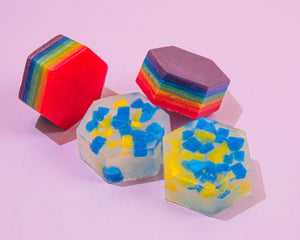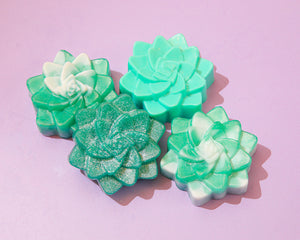Your child's teacher sends home that familiar end-of-year packet: "Here are some activities to help prevent summer learning loss." Your 8-year-old takes one look at the worksheets and suddenly finds urgent reasons to be anywhere else. Meanwhile, you're caught between wanting to preserve the joy and freedom of summer break and the nagging worry that three months without structured learning will undo a year's worth of academic progress.
Here's what educators know but rarely advertise: the most effective summer learning doesn't look like school at all. In fact, the activities that best maintain and build academic skills are often the ones kids beg to do again. When learning is embedded in hands-on exploration, creative projects, and real-world problem-solving, children's brains stay engaged and growing without the resistance that comes with traditional "educational" activities.
The secret isn't more worksheets or formal lessons—it's choosing activities so engaging that learning becomes inevitable rather than intentional.
The Hidden Learning Revolution
Why Traditional Summer Learning Fails
Most summer learning programs fail because they try to recreate school during vacation. Children's brains, which have been in structured learning mode for nine months, need time to rest, explore, and make connections in different ways. The most effective summer learning happens through:
Experiential discovery: Learning through doing rather than being told Choice and autonomy: Kids pursuing topics that genuinely interest them Real-world application: Using skills to accomplish meaningful goals Cross-curricular connections: Combining subjects naturally rather than studying them in isolation Low-pressure exploration: Freedom to make mistakes and try again without grades or evaluation
STEM Learning Disguised as Summer Fun
Kitchen Chemistry Adventures (Ages 6-12)
Transform your kitchen into a laboratory where kids learn scientific principles while creating useful or delicious results.
Soap Making Science: Bramble Kids' soap making kits teach chemistry concepts through hands-on experimentation. Kids learn about:
- Chemical reactions: How different ingredients interact to create soap
- States of matter: Observing solids melting and liquids solidifying
- Measurement accuracy: Following recipes requires precise measuring skills
- Problem solving: Troubleshooting when results don't match expectations
Cooking Mathematics: Regular cooking projects naturally incorporate multiple math concepts:
- Fractions: Doubling recipes or cutting them in half
- Measurement conversion: Cups to ounces, teaspoons to tablespoons
- Time calculation: Planning when to start each component of a meal
- Geometry: Understanding how pan sizes affect cooking times and portions
Garden Biology Lab: Start container gardens that become ongoing science experiments:
- Plant biology: Observing root development, leaf growth, and flowering cycles
- Environmental science: Testing how different conditions affect plant growth
- Data collection: Measuring and documenting growth over time
- Hypothesis testing: Predicting and testing what plants need to thrive
Engineering Challenges That Feel Like Play (Ages 7-12)
Present building challenges that develop engineering thinking without mentioning the word "engineering."
Backyard Water Systems: Challenge kids to move water from one location to another using household materials:
- Physics concepts: Gravity, flow rate, pressure differences
- Problem-solving: Overcoming obstacles and design failures
- Iteration: Improving designs based on test results
- Collaboration: Working together to achieve complex goals
Structural Engineering Games: "Can you build a tower that's taller than you using only newspaper and tape?"
- Engineering principles: Load distribution, stability, material properties
- Mathematical thinking: Measuring, comparing, estimating
- Persistence: Learning from failures and trying new approaches
- Creative thinking: Finding innovative solutions to constraints
Language Arts Through Living
Storytelling Science (Ages 4-10)
Combine creative writing with scientific observation for stories that teach both literacy and science concepts.
Nature Documentaries: Kids become wildlife photographers and writers, documenting backyard creatures:
- Observation skills: Learning to notice details and changes over time
- Descriptive writing: Practicing adjectives, sensory details, and precise language
- Research skills: Looking up information about discovered creatures
- Presentation skills: Sharing findings with family members
Historical Fiction Projects: Choose historical periods and have kids write stories from that era:
- Research skills: Learning about daily life, technology, and culture
- Perspective taking: Understanding how life differed in other times
- Narrative structure: Beginning, middle, end, character development
- Vocabulary building: Learning period-appropriate language and terms
Reading That Feels Like Adventure (Ages 5-12)
Connect books to hands-on activities that bring stories to life while building comprehension skills.
Book-Based Crafting: After reading books, create objects or experiences from the stories:
- Comprehension: Understanding details well enough to recreate them
- Visualization: Translating written descriptions into physical objects
- Critical thinking: Analyzing how things work in story contexts
- Connection making: Linking fiction to real-world knowledge
Author Study Investigations: Choose favorite authors and become detectives studying their work:
- Pattern recognition: Noticing themes, writing styles, character types
- Research skills: Learning about authors' lives and inspirations
- Comparative analysis: Understanding how different books by same author relate
- Prediction skills: Anticipating plot developments based on author patterns
Math in Real-World Contexts
Business and Economics Games (Ages 8-12)
Turn kids into entrepreneurs running imaginary (or real) businesses that teach practical math skills.
Lemonade Stand Economics: Move beyond basic selling to understand real business concepts:
- Profit and loss: Understanding costs versus revenue
- Supply and demand: Adjusting prices based on customer response
- Budgeting: Planning how to spend limited startup money
- Record keeping: Tracking sales, expenses, and profits over time
Family Budget Challenges: Give kids age-appropriate responsibility for family spending decisions:
- Comparison shopping: Finding best prices for family needs
- Percentage calculations: Understanding discounts and tax
- Priority setting: Deciding between wants and needs with limited money
- Long-term planning: Saving for larger purchases over time
Measurement and Data in Daily Life (Ages 6-12)
Incorporate mathematical thinking into routine activities without making them feel like homework.
Weather Tracking Stations: Set up systems for collecting and analyzing local weather data:
- Data collection: Recording temperature, rainfall, wind speed daily
- Graphing skills: Creating visual representations of data over time
- Pattern recognition: Noticing trends and making predictions
- Statistical thinking: Understanding averages, ranges, and variability
Growth and Change Documentation: Track changes in plants, pets, or family members over summer:
- Measurement skills: Using rulers, scales, and other measuring tools accurately
- Time concepts: Understanding daily, weekly, and monthly intervals
- Rate calculations: Determining how fast things grow or change
- Prediction making: Estimating future growth based on current data
Social Studies Through Experience
Community Connection Projects (Ages 6-12)
Help kids understand their place in the world through direct engagement with their community.
Neighborhood History Detectives: Research and document the history of your local area:
- Research skills: Using libraries, internet, and interviews to gather information
- Timeline creation: Understanding chronological order and historical sequence
- Geography skills: Understanding how places change over time
- Cultural awareness: Learning about different groups who lived in the area
Government in Action: Attend local government meetings or visit government buildings:
- Civic understanding: Learning how decisions affect daily life
- Democratic processes: Understanding voting, debate, and compromise
- Current events: Connecting local issues to broader social studies concepts
- Advocacy skills: Learning how citizens can influence their community
Cultural Exploration Adventures (Ages 5-12)
Explore different cultures through food, art, music, and traditions without leaving home.
International Cooking Adventures: Choose countries and prepare traditional foods while learning about culture:
- Geography: Understanding where countries are located and their climates
- Cultural traditions: Learning why certain foods are important to different groups
- History: Understanding how trade and migration spread foods around the world
- Comparison skills: Noticing similarities and differences between cultures
Science Through Everyday Wonder
Backyard Laboratory Investigations (Ages 5-12)
Turn natural curiosity into scientific thinking through structured but fun exploration.
Bug Biology Studies: Become entomologists studying local insect life:
- Classification skills: Learning to group and categorize living things
- Life cycle understanding: Observing how creatures grow and change
- Ecosystem thinking: Understanding how different creatures depend on each other
- Scientific drawing: Recording observations through detailed illustrations
Physics Through Play: Explore how the world works through hands-on experimentation:
- Motion studies: Rolling balls down ramps, swinging pendulums, launching rockets
- Sound investigations: Creating musical instruments, exploring echoes
- Light experiments: Prisms, shadows, reflection and refraction
- Magnetism exploration: Testing what magnets attract and repel
Chemistry Without Chemicals (Ages 6-12)
Use safe household materials to explore chemical concepts that normally require expensive lab equipment.
Bath Bomb Chemistry: Bramble Kids' bath bomb kits provide hands-on chemistry learning:
- Acid-base reactions: Understanding how ingredients interact to create fizzing
- Measurement precision: Learning that small changes create big differences
- Hypothesis testing: Predicting what will happen with different ingredient ratios
- Observation skills: Documenting what happens during chemical reactions
Age-Specific Learning Approaches
Ages 4-6: Foundation Through Exploration
Young children learn best through sensory experiences and repetitive practice disguised as play.
Learning through senses: Activities that involve touching, tasting, hearing, seeing, and smelling Repetition with variation: Same skills practiced in different contexts Immediate feedback: Activities where results are obvious and immediate Adult interaction: Learning that happens through conversation and shared experience
Perfect activities: Cooking projects, sensory bins, nature collections, simple building challenges
Ages 7-9: Skill Building Through Projects
Elementary-age children can handle more complex projects that build specific academic skills while pursuing personal interests.
Multi-step processes: Projects that require planning, execution, and evaluation Skill combination: Activities that naturally combine reading, writing, math, and science Choice and ownership: Projects where kids can make meaningful decisions Real-world connections: Learning that clearly relates to adult activities and interests
Perfect activities: Science fair projects, cooking from recipes, garden planning, simple business ventures
Ages 10-12: Mastery Through Application
Pre-teens can engage with sophisticated concepts when presented through hands-on application rather than abstract study.
Complex problem solving: Challenges that require research, planning, and iteration Independent learning: Projects kids can pursue with minimal adult supervision Skill transfer: Learning that obviously applies to multiple contexts Personal expression: Opportunities to incorporate individual interests and styles
Perfect activities: Documentary creation, advanced cooking projects, community service, entrepreneurial ventures
Preventing Summer Slide Without Summer School
Research from the American Psychological Association shows that children who engage in hands-on learning activities during summer break maintain academic skills better than those who complete traditional worksheets or attend formal summer school programs.
Key principles for effective summer learning:
- Follow child interests: Start with what kids already care about
- Make it social: Learning is more effective when shared with others
- Connect to real world: Abstract concepts become concrete through application
- Celebrate process: Focus on effort and discovery rather than perfect results
- Stay flexible: Adapt activities based on what's working and what isn't
Creating Learning-Rich Environments
The most effective summer learning happens when families create environments where discovery and exploration feel natural rather than forced.
Home modifications for natural learning:
- Accessible materials: Art supplies, building materials, and books within easy reach
- Question-friendly culture: Celebrating curiosity rather than expecting instant answers
- Documentation systems: Ways to capture and revisit interesting discoveries
- Connection opportunities: Regular family discussions about what everyone is learning
Community resources for extended learning:
- Libraries: Free programs, books, and research resources
- Museums: Hands-on exhibits and educational programs
- Community gardens: Real-world biology and environmental science
- Local businesses: Field trips that show how academic skills apply to work
The Long-Term Benefits
Children who engage in engaging summer learning develop more than academic skills. They build:
Intrinsic motivation: Learning to pursue knowledge for its own sake rather than external rewards Problem-solving confidence: Believing they can figure out new challenges Connection-making abilities: Seeing relationships between different subjects and experiences Lifelong learning habits: Treating curiosity and exploration as normal parts of life
Assessment Without Anxiety
Parents often worry about whether summer learning activities are "working" without traditional tests and grades. Here are natural ways to observe learning progress:
Increasing complexity: Kids naturally choose more challenging versions of activities they enjoy Teaching others: Children who understand concepts want to explain them to siblings or friends Transfer application: Skills learned in one context appear spontaneously in different situations Sustained engagement: Kids return to activities repeatedly and develop them further over time
Rather than formal testing, trust that engaged, curious children are learning. The goal isn't to replicate school assessment but to foster the love of learning that makes formal education more effective.
Summer shouldn't feel like an extended homework assignment, but it also doesn't need to be an intellectual vacation. When learning is embedded in exploration, creativity, and real-world application, children's minds stay sharp and growing while their spirits stay free and joyful.
At Bramble Kids, we believe the best education happens when children don't realize they're being educated. Our hands-on learning kits are designed to make chemistry, mathematics, and scientific thinking feel like the summer adventures they actually are.
This summer, give your children the gift of discovery disguised as play. Watch as their natural curiosity becomes the engine that drives real learning—the kind that lasts long after vacation ends and creates a foundation for lifelong intellectual adventure.



